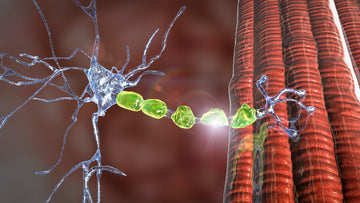CBD for Pain
How we experience pain differs between situations, cultures, and people. Yet, despite our differences, everyone wants to live pain-free.
Cannabis is widely accepted to have therapeutic potential. Since long-term effects with THC are unclear and have a higher risk for abuse, cannabinol, or CBD, is much more attractive. CBD is non-intoxicating and has a low risk for tolerance, abuse, toxicity, and side effects. It is also legal in more parts of the world since it comes from hemp, the non-intoxicating, fiber-like variety of cannabis.
This article will explain why people are using CBD for pain, what the science says about its effectiveness, and how to choose a quality product.
Why take CBD for pain?
Many pharmaceutical pain medications are unfavorable. They are not competent enough or have a high risk of toxicity and addiction. They are often expensive, just as many people have insufficient access to the care they need. A more efficient and universally available way to prevent and treat pain is necessary.
Plants, like hemp, are attractive because they grow abundantly and pose less long-term side effects than pharmaceuticals. Furthermore, humans used plants for thousands of years to treat themselves, with evidence of hemp and cannabis use across Europe and Asia.
Since CBD's surge in popularity, countless testimonials credit it for helping with pain management, making it one of the leading reasons why people take it. But to understand just how effective it is, we need to know how it functions in our bodies.
What kind of pain is CBD used for?
Pain is how our bodies alert us to danger or harm. There are two main types of pain: chronic and acute. Acute pains are cuts, bruises, or broken bones, that heal after the initial cause is gone.
Chronic pain, however, is persistent and useless to the body. There are no active threats, only unresolved issues. Chronic pain lingers and creates a burdensome, vicious cycle. Health, relationships, work performance, finances, and emotions are all negatively affected by chronic conditions.
Fortunately, evidence suggests that when cannabinoids relieve pain, it happens in hyper-sensitive or inflammatory states. This suggestion explains why CBD has been more helpful for intense conditions rather than everyday aches and pain.
How does CBD affect how we feel pain?
Cannabinoids influence how our body processes pain, but since there have not been any randomized, placebo-controlled studies on CBD exclusively, exactly how is still unclear.
We know that CBD interacts indirectly with the body via the Endocannabinoid System, or the ECS, which is responsible for maintaining bodily homeostasis. This role also includes how we feel pain. One hypothesis involves the endogenous cannabinoid called anandamide.
Anandamide is Sanskrit for "bliss." As the name suggests, it is involved in mood and emotions. It also contributes to our memory, cognition, appetite, and – most importantly – how we feel pain. Anandamide is a full agonist at the vanilloid, or TRPV–1 receptor, which helps to detect pain and temperature change. A full agonist means it binds to the receptor and produces an effect – in this case; the result is pain relief.
It's thought that CBD boosts anandamide levels or allows them to stay active longer, thus minimizing uncomfortable sensations.
The importance of anti-inflammation
Another supported hypothesis is that CBD fights pain through its anti-inflammatory properties.
Inflammation is how the Immune System fights infection, but often results in redness, stiffness, and pain. This discomfort is especially true for arthritis, as the pain is caused by chronic inflammation in the joints.
Fortunately, if you can lower inflammation, you can also reduce pain. CBD has displayed anti-inflammatory effects in multiple animal studies and is another leading reason why people use it.
For instance, a study in 2017 on a topical CBD gel for rats with osteoarthritis found that CBD reduced inflammation while preventing nerve damage.
What kind of CBD is best for pain?
Cannabis contains multiple cannabinoids, terpenes, and flavonoids that each have unique medicinal traits. Terpenes, which give plants their taste and smell, and flavonoids, responsible for color, are found throughout the plant kingdom. Combined, they elicit multiple benefits, including:
- anti-inflammatory
- analgesic
- anti-anxiety
- anti-depressant
- anti-insomnia
- anti-cancer
- antiviral
- antibacterial
- antifungal
- neuroprotectant
That is a substantial amount of benefits, considering there are over a hundred different types of terpenes and a handful of flavonoids in hemp. Research continually supports the theory that these components work better together than apart, including a 2018 review on cannabis for migraines.
The review looked at the high-THC variety of cannabis as there have not been any studies on CBD alone for migraines. The results are nonetheless intriguing. According to the various studies in the review, one isolated cannabinoid was not as useful as the whole plant.
Choosing your CBD
Until we know more about the cannabinoids in isolation, full-spectrum, or whole plant products will likely optimize your chances of success with pain relief. It all depends on what type of strain you get, as each has a unique variation of terpenes, flavonoids, and CBD potency.
Since these terpenes, flavonoids, and cannabinoids occur in the flowers and leaves of the hemp plant, pollen is an excellent full-spectrum product. Pollen is loosely compressed flowers and leaves, therefore containing significant concentrations of these remarkable molecules.
You can even see the plant's signature composition based on the color variations, which range from light green to dark brown. When choosing pollen, look for strains that promote relief or relaxation. Some terpenes to look out for are myrcene, linalool, pinene, and caryophyllene. You can see our quality strains at our Products Page.
Final thoughts
Remember that CBD is not guaranteed to work for anyone. Until more about it is proven, make sure to consult with your doctor before taking it. If you are looking to try CBD for discomfort, do your research and only buy from trusted, quality brands, as the market remains unregulated.
While research still has a long way to go, hemp continually proves itself worthy of study. It is an attractive option to pursue for people suffering from chronic pain to improve their quality of life.

















